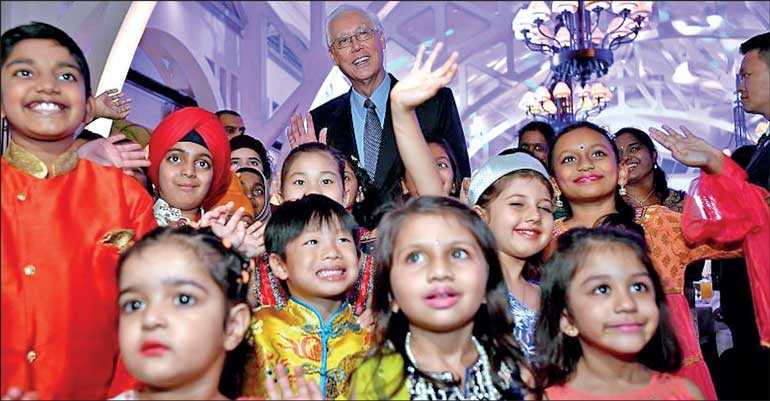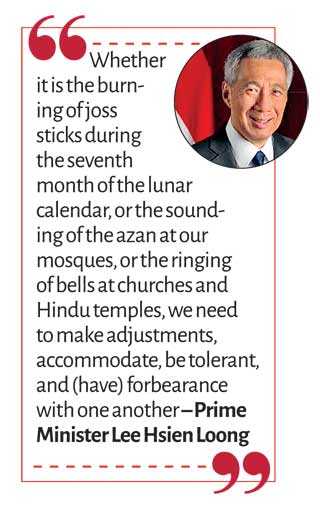Monday Feb 23, 2026
Monday Feb 23, 2026
Friday, 30 August 2019 00:00 - - {{hitsCtrl.values.hits}}

Changes to a law that safeguards religious harmony in Singapore will be introduced in Parliament next week, a move to pave the way for the Government to deal with new threats in a comprehensive and timely manner.
Prime Minister Lee Hsien Loong, in announcing the legislative move yesterday, noted the Government had never had to invoke its powers under the Maintenance of Religious Harmony Act in the last 30 years.
However, in this span of time, the situation has changed significantly, he said.
“The proliferation of social media has made it much easier for people to cause offence through spreading vitriol and falsehoods, and for others to take offence,” Lee said at the 70th anniversary dinner of Singapore’s Inter-Religious Organisation (IRO).
The Act – which was passed in 1990 but took effect two years later – lets the Government issue restraining orders against those who sow discord among faiths, among other things.
Plans to update it were announced last month by Law and Home Affairs Minister K. Shanmugam.
Lee noted Singapore has made great strides in building mutual trust and confidence, and is more cohesive, with people able to discuss sensitive matters more openly and candidly.
“But we do not allow unfettered and rambunctious discussion on religion or even worse, provocative or blasphemous cartoons, performances and videos, nor are we likely to do so for a very long time to come,” he said.
“We have no illusions about the depth of the religious fault lines in our society, and the harm that will befall us if we neglect to manage them,” he added, noting that Singapore had suffered religious strife in the past.
Elsewhere, the prevailing trends are towards inter-religious strife, intolerance and extremism, he said. Even in countries where different groups have lived together for centuries, race and religion are sensitive issues which can be exploited, Lee added, citing Sri Lanka and the Philippines.
“Against that backdrop, what we have in Singapore is very precious, very rare and remarkable.”
The Act sets the ground rules for all groups and helps the Government police these rules, Lee said. The Act also established the Presidential Council for Religious Harmony, which has given good advice on dealing with sensitive religious matters that arise from time to time, he noted.
Its very existence has helped to maintain peace and harmony in Singapore, which people sometimes take for granted, Lee said. While he did not elaborate on the proposed changes to the Act, he said religious leaders were consulted widely on them and he was grateful for their support.
But legislation is only one part of Singapore’s approach in building religious harmony, which, Lee warned, can be disrupted by religious problems elsewhere.
“We must also have religious and government leaders who are broad-minded and enlightened, who understand the context in which we operate, and who set an example for others to spread the message of tolerance and understanding,” he added.
He commended the work of younger IRO leaders, for reaching out to non-religious groups, among other efforts, and also the contributions and guidance of elder leaders.
For its 70th anniversary, the IRO launched an initiative, ‘We the People of Singapore,’ with the Central Singapore Community Development Council.
This initiative will promote better understanding of the various faiths in Singapore through digital outreach efforts, such as a revamped IRO website and use of social media.
(Source: https://www.straitstimes.com/politics/changes-to-religious-harmony-law-to-be-tabled-next-week-pm-lee)